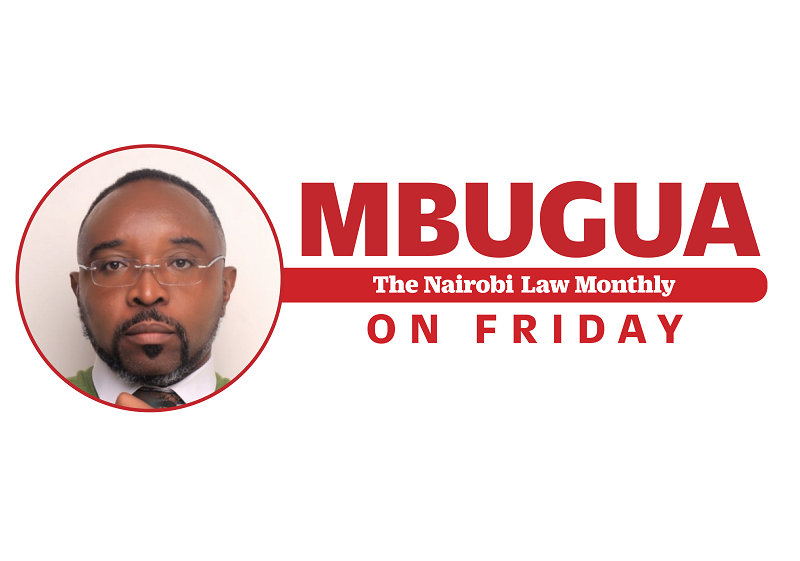Just this week, traders in Eastleigh closed their businesses — a very rare occurrence — to protest the killing of a mother, her daughter and a niece.
To understand what the protest means for the economy, Eastleigh contributes 60 per cent of all M-Pesa revenues in Nairobi and five per cent of the platform’s transactions nationally. For context, 59 per cent of Kenya’s Gross Domestic Product (GDP) flows through M-Pesa, so one can calculate how big a role Eastleigh contributes to wealth creation.
So, when businesses in that neighbourhood are shuttered for their owners to take part in peaceful protests, it is not just citizens taking to the streets; it is the economy taking a big blow.
This happened because the police, who are supposed to protect lives and property as provided for in the Constitution, failed to do their duty and remain clueless about who killed the mother, Waris Daud, her daughter, Nuseiba Dahir (12) and Daud’s niece, Amina Abdirashad (23), and what the killer’s mens rea was. Mens rea refers to the intention to commit a felony, such as pre-meditated murder.
The same week, and before Kenyans could come to terms with the killings, Willis Ayieko, a HR officer with Wells Fargo, a top private security firm, was killed in cold blood. To make it worse, the gruesome video of his body being retrieved from a canal was shared widely on social media.
He had what looked like handcuffs around his wrists, his legs had been tied and, according to his relatives, his body had been dismembered. Up until now, the police have not uttered a word about the status of investigations into the case. Are they on it? No one knows. Do they have a suspect? That has been left to conjecture.
To add insult to these attacks on personal security, the county government of Nairobi — under the stewardship of Governor Johnson Sakaja — had gone to court earlier in October seeking authorisation to bury 600 “unidentified” bodies at the City Mortuary.
Six hundred people can fill 46 Nissan matatus!
This was the second time that the county government was making such a request this year. One of the bases of its argument was that it had a capacity to hold only 180 bodies and was no longer able to accept more bodies.
City Mortuary — now going by the fancy name of Nairobi Funeral Home — is where all fatalities involving police cases are handled. Part of the reason the court declined to give the city county government the go-ahead to dispose of the bodies was that there were many Gen-Z protesters who were killed by police and it would be too soon to get rid of the bodies.
The import of this is that there are some families that are yet to learn that their young relatives were killed in the protests. As such, disposing of the bodies en masse would deny the families the opportunity for closure.
Let us not forget that there is an MCA from Wajir, known as Yussuf Ahmed, who has been missing for weeks on end. A body alleged to be his was last week proven by DNA tests to be that of someone else, who is yet to be identified.
The questions that then arise are: Where is Yussuf? Whose body was that that police found? Why is one missing and why is the other one dead? Who is holding the MCA and who killed the other man?
Put together, these unexplained deaths and disappearances necessitate two questions: Who is responsible for the killings? Are these criminal acts or is the State involved?
If the State is involved in an elaborate scheme to eliminate its citizens, this in turn raises fundamental questions about constitutional guarantees to the right to life and personal safety and the freedom to hold views other than those that curry favour with the current administration.
For me, the more urgent questions are: Are security agencies taking out citizens perceived to be critical of the current administration? If they are not, are they saying that they lack the capacity to stop the killings or bring the culprits to book?
Kenya has come too far to again descend into the abyss of disappearances and killings, whether these are sanctioned by the State or not. It was for a reason that citizens bequeathed themselves the 2010 Constitution, outlining their rights and the responsibilities of the State. That was the basis of the social contract between “We the People” and those to whom citizens have delegated the responsibility to run their collective public affairs.
The moment State actors abrogate that responsibility, they lose all forms of legitimacy to hold the high offices that citizens have entrusted them with. As such, it is either they uphold the Constitution and guarantee the rights and freedoms of citizens, or they throw in the towel and acknowledge that they are no longer able or willing to live up to the expectation of the high offices they have been entrusted with. There are no three ways about it.



